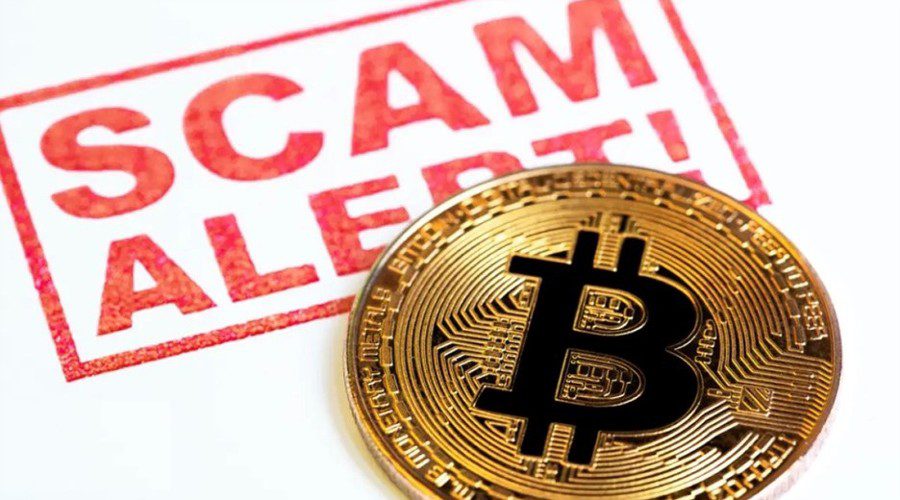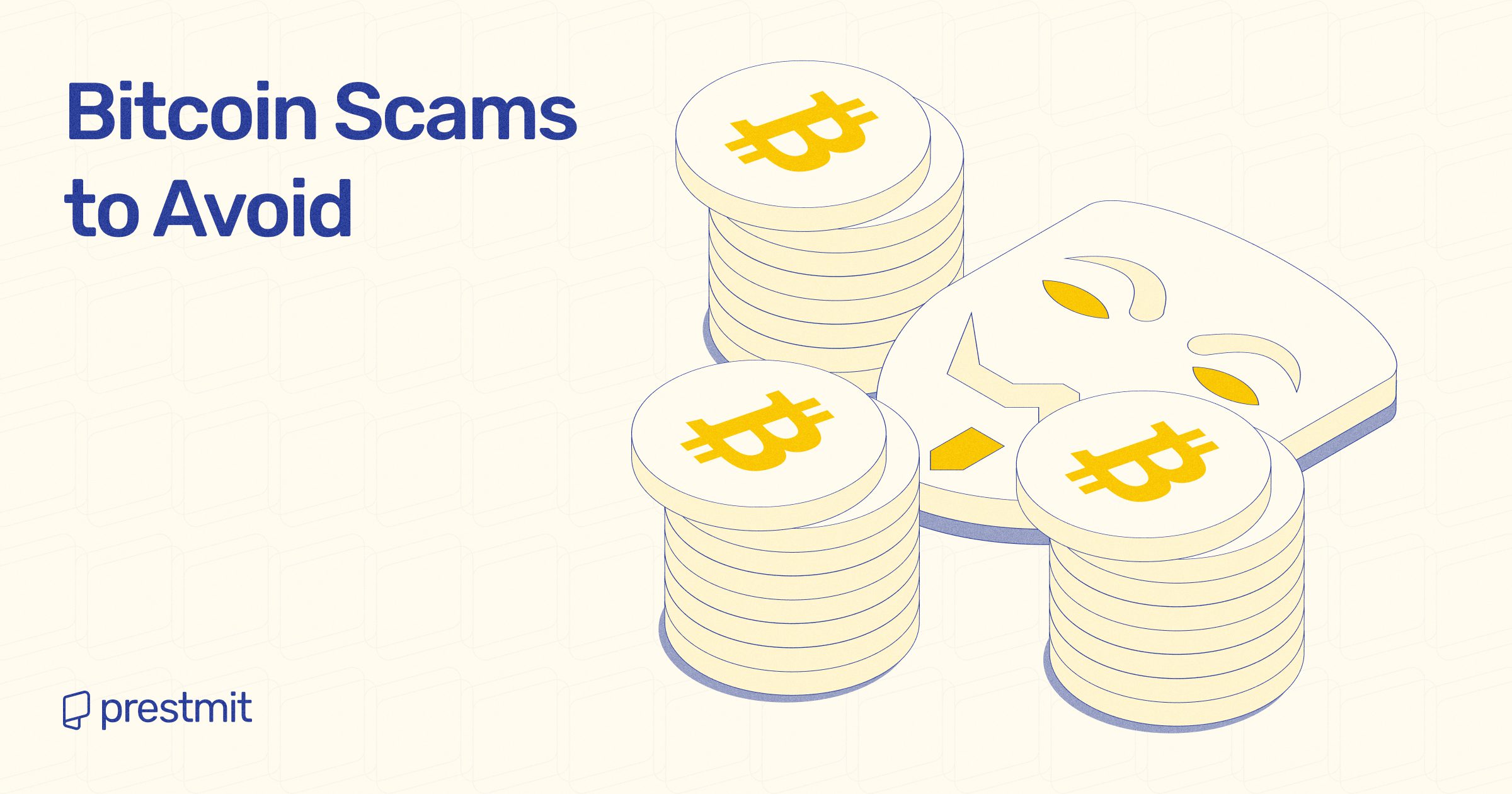Table of Contents
Bitcoin continues to gain traction as the most popular and most expensive cryptocurrency in the market. This is owed to its increasing adoption by both institutional and individual investors, which put a huge demand on Bitcoin and, in turn, increased its value. So, as crypto trading is largely one of the best ways to make money online in this digital age, there has also been the emergence of various scams that have become pervasive in the market. Hence, why you should know about Bitcoin scams in to avoid.

1. Phishing Scams
Bitcoin phishing scams usually target vital information relating to online wallets of crypto exchanges or individual users. Here, scammers target private keys of the Bitcoin wallet, which are required to access funds within the wallet.
These malicious entities can send an email to deceive their potential victims to a specially created website, asking them to enter their private key information. Also, hackers can create a fake exchange website, which will be a clone of the exchange you use. Once the hackers get the information, they drain the Bitcoin in the wallets.
2. Giveaway Scams
Bitcoin giveaway scams are becoming rampant today, especially with deepfake videos of celebrities on social media platforms promising to match or multiply the cryptocurrency sent to them. So this often comes from what looks like a valid social media account, giving a sense of urgency for Bitcoin users to leverage the charade that seems like a good opportunity.
For instance, there has been a Bill Gates Bitcoin giveaway scam in which scammers used deepfake videos of the American billionaire to deceive unsuspecting users into believing that there is a giveaway program from Bill Gates, which is all plotted to steal funds from users.
3. Bitcoin Ponzi Scheme
A Bitcoin Ponzi scheme is an investment scam designed to lure unsuspecting investors with the promise of high returns from a non-existent enterprise. In most cases, a fraudulent company receives funds from new investors and distributes them to early investors under the disguise that the funds are profits made from legitimate investment activity.
Notably, Onecoin and Bitconnect are some of the biggest crypto scams in history, which took place in the form of a Ponzi scheme that resulted in huge loss of funds for investors. For instance, the Onecoin Ponzi scheme reportedly defrauded investors of $5.8 billion by marketing the Onecoin token as a “Bitcoin Killer.”
4. Fraudulent ICOs
ICOs (initial coin offerings) are a way for start-up crypto companies to raise funds from future users. So fake start-up firms often promise customers a discount on the new crypto coins in exchange for sending Bitcoin or other popular crypto assets.
Scammers can even go as far as creating high-end marketing materials to convince people about the credibility and prospects of the ICOs, all of which are lies. However, unsuspecting users discover this as a scam when they can not access the start-up company again.
5. Romance Scams
Bitcoin romance scams involve malicious entities pretending to form a relationship with their potential victims on social media and later asking for financial help in the form of Bitcoin. This type of scam is becoming popular as people are falling victim to it.
What seems to be a romantic relationship often turns out to be a scam when a partner deceives the other partner that they are in a dire situation that requires financial aid. Once the Bitcoin user sends the funds, they will be contacted, which makes them lose funds and have an emotional breakdown.
How Can You Avoid Bitcoin Scams?
1. Protect Your Wallet
You need a Bitcoin wallet to trade or invest in the cryptocurrency. So, if any entity requests you to share your keys to participate in an investment opportunity, it may be a scam. You must ensure to keep your keys private all the time.
2. Be Patient
Scammers often devise high-pressure tactics to get you to invest your Bitcoin quickly without even thinking twice. For instance, scammers can use a strategy of promising bonuses or discounts if you participate immediately. Therefore, ensure you take your time and research in-depth before investing your funds.
3. Be Wary Of Social Media Adverts
Social media platforms have become a hotbed of scammers lurking in the space to promote their fraudulent schemes. They may use images of celebrities or high-profile business persons to create a sense of legitimacy.
You must ensure that you are hesitant when you see crypto opportunities being promoted on social media platforms. Also, do your due diligence to ensure safety from scams.
Frequently Asked Questions (FAQs) About Bitcoin Scams
How Do I Avoid Bitcoin Scams?
You can avoid Bitcoin scams by ensuring the security and safety of your private keys. Do not give anyone your keys details, irrespective of the connection. Also, it would help if you were not quick to jump at Bitcoin giveaways, which are mostly fraudulent to steal from you.
Can I Lose My Bitcoin To Phishing?
Yes, you can lose your Bitcoin to phishing attacks. As a matter of fact, phishing is one of the tactics hackers use to access crypto wallets and steal funds. Therefore, ensure you don’t click any link sent to you as this may be infected with malware that would give scammers unauthorized access to your account/wallet.
Can I Trace Bitcoin Scams?
Yes, you can trace Bitcoin scams through legal action, but it is important to note that you may not be able to recover the funds despite their tracking. This is why you must always be careful with your wallet and guard it with relevant security features.
Conclusion
Bitcoin scams are becoming prevalent in our world today, but the risk can be mitigated if you know the tactics that scammers employ – some of which we have highlighted in this article. Your funds can be free from theft if you take the right steps to prevent hackers from accessing your account or wallet.
Last updated on August 8, 2025

